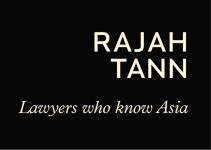14 October, 2015
For a foreign company operating business in Thailand, the key anti-bribery provision to keep in mind is Section 144 of the Criminal Code, the full text of which is as follows:
“Whoever gives, offers or agrees to give an item of property or any other benefit to any official, member of the State Legislative Assembly, member of the Changvad1 Assembly or member of the Municipal Assembly in order to induce such person to do or not to do any act, or to delay the doing of any act, which is contrary to his functions, shall be punished with imprisonment not exceeding five years or a fine not exceeding ten thousand THB, or both.”
The Criminal Code also makes it an offence for a company’s agent to make the improper payment.
Recent amendments in the Organic Act on Counter-Corruption (No. 3) B.E. 2558 (2015) (Counter- Corruption Act No. 3) have introduced a similar provision (in Section 123/5), which imposes a higher penalty on the offender who gives, offers or agrees to give any benefit to “State Officials”, “Foreign State Officials”, or “International Organization Officials”.
The full text of Section 123/5 of the Counter-Corruption Act No. 3 is as follows:
“Whoever gives, offers or agrees to give an item of property or any other benefit to any State Official, Foreign State Official, or International Organization Official in order to induce such person to do or not to do any act, or to delay the doing of any act, which is contrary to his functions, shall be punished with imprisonment not exceeding five years or a fine not exceeding one hundred thousand THB, or both.
In case the offender under paragraph one is a person related to a juristic person and commits [the offence] for the benefit of the juristic person, whereby the said juristic person does not have appropriate internal control measures to prevent the commission of the offence, such juristic person shall be liable under this Section and shall be punished with a fine from one time but not exceeding two times the damages incurred or the benefits gained.
A person related to a juristic person under paragraph two shall include an employee, agent, affiliated company, or any person acting for or on behalf of the juristic person, where he has the power or duty to act as such.”
The application of this provision to “Foreign State Officials” and “International Organization Officials” is particularly interesting as it appears to have the intention to close what was a gap in the application of Thai anti-bribery laws.
Under the Counter-Corruption Act No.3, a “Foreign State Official” is defined as “any person holding a legislative, executive, administrative or judicial office of a foreign country and any person exercising a public function for a foreign country, including for a public agency or public enterprise, whether appointed or elected, whether holding a permanent or temporary position, and whether being paid a salary or other compensation.
An “International Organization Official” is defined as “any person working in an international organization or any person who is authorized by such international organization to act on behalf of that international organization.”
ANTI-CORRUPTION LAWS
Although there is no definition of “International Organization” in Counter-Corruption Act No.3, the amendment was introduced to be consistent with the United Nations Convention against Corruption (UNCAC). As the UNCAC provisions refer to the official of a public organisation, we believe that the reference to an “International Organization” in the Counter-Corruption Act No.3 is intended to cover only a public international organization, and not a private international organization.
The new Section 123/5 also imposes liability on a juristic person where the offender has committed an offence in the interests of such juristic person. This provision introduces into Thai law the defence of having “appropriate internal control measures to prevent the commission of the offence”, which is a significant advance towards recognizing the importance of internal corporate compliance measures.
Therefore, now more than ever, it is important for companies to examine their internal compliance measures in place – e.g. documented policies and employee training, as well as standard wording in all agreements with third party service providers such as customs brokers.
1 Provincial Assembly.
For further information, please contact:
Surasak Vajasit, Partner, Rajah & Tann
Surasak.v@rajahtann.com





